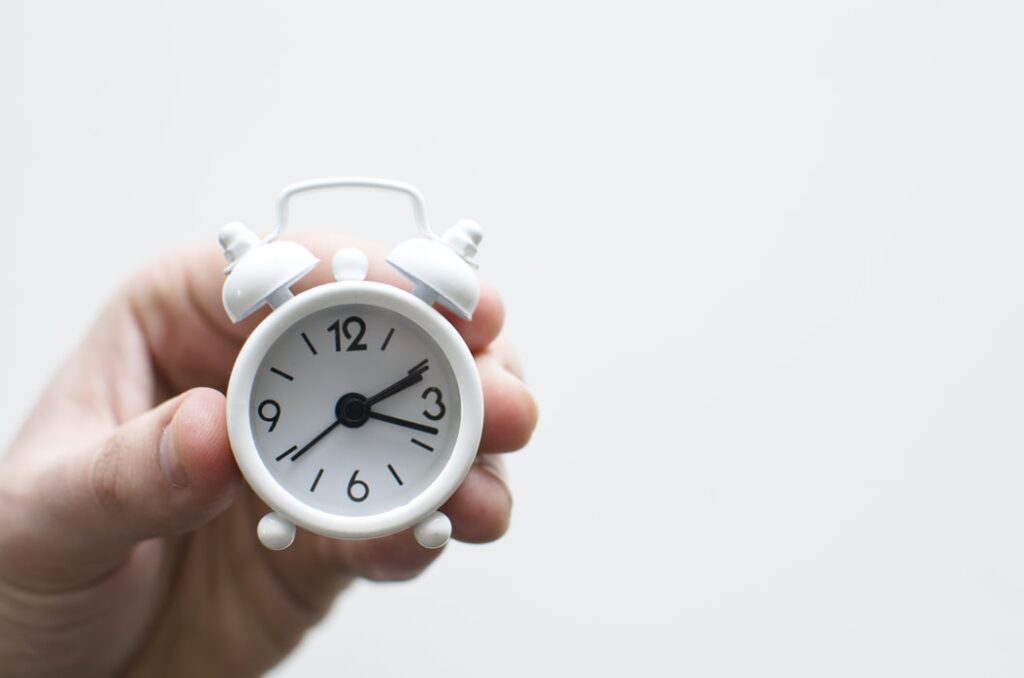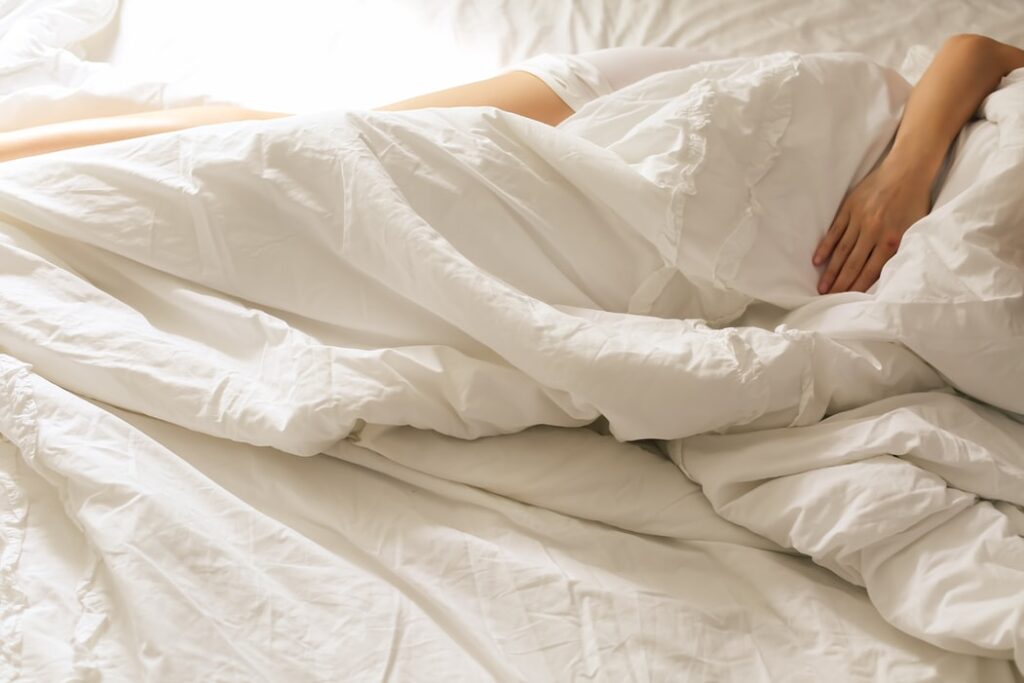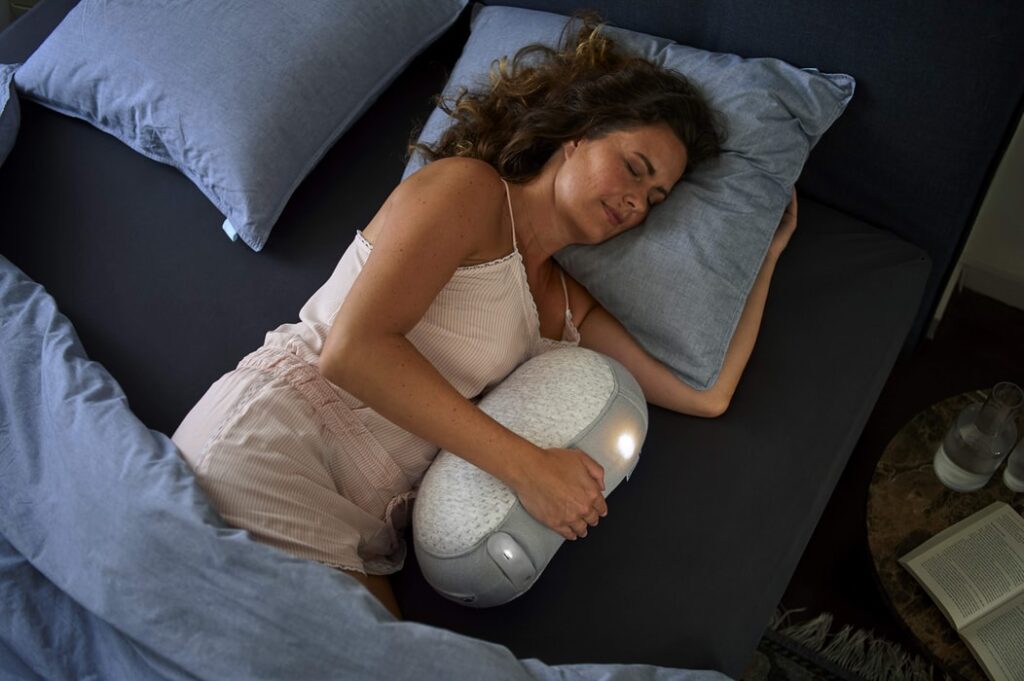As the world sets foot into another year, many individuals are gearing up to accomplish new goals for 2024. Unquestionably, 2024 was a challenging year for everyone due to unfortunate events, notably the COVID-19 pandemic. While this public health crisis remains unobliterated as the world enters another year, COVID-19 isn’t an excuse to improve your quality of life.
Every day is an opportunity to live your life to the fullest, and the best way to start doing so is to enhance your lifestyle. Are you getting seven to nine hours of sleep daily? If not, then it’s time to rethink your lifestyle practices and begin prioritizing a consistent, good night’s sleep.Sleep: The Siblings of Nutrition and Exercise
Proper nutrition, regular exercise, and adequate sleep are the ingredients for excellent health. To achieve optimal overall health, an individual must find a balance between these three health facets.
Without good quality sleep, your efforts from eating well and exercising regularly won’t pay off. As much as you’d want to be productive all day, you should allow seven to nine hours of sleep every night to replenish your energy for another long day.
In light of this, take note of these nine tips to achieve better sleep in 2024:
-
Organize Your Sleeping Space

Humans have an internal clock responsible for various bodily functions called the circadian rhythm. You’re naturally inclined to become active during the day, and then your body signals to rest and sleep when it’s dark at night. An excellent way to improve your sleep is to establish a sleeping environment that’ll support your body’s circadian rhythm.
If your room is exceedingly bright at nighttime, your eyes’ optic nerves will signal the existence of light to your brain. Once brightness is detected, your body will release high cortisol levels, inhibit melatonin production, and induce a higher body temperature, all of which contribute to wakefulness. Therefore, always keep your room dark at night to stimulate drowsiness.
Here are other tips to optimize your sleeping environment:
- Eliminate clutter exposed to your sight
- Use earplugs or play white noise music if your sleeping place is noisy
- Remove electronics from your bedroom
-
Invest In High-Quality Pillow and Mattress

Along with your bedroom’s environment, your sleeping peripherals like pillows, mattress, and sheets, and sleepwear highly impact your sleep quality. For a tight sleep, your sleeping peripherals should be supportive and comfortable enough. While spending money on your meal recipes and gym membership, make sure to invest in a well-performing pillow and mattress as well.
Mattresses get more attention when people invest in new sleeping equipment. While a mattress offers support to your whole body, pillows primarily cushion your head and neck to maintain good posture and alignment. As a rule of thumb, your pillows should be replaced within 18 months, and their quality goes up with the price.
Feather and memory foam pillows are popular pillow options. However, if you’re looking into enhanced contouring support without excessive firmness and tension, you could try millet hull pillows from stores like pinetales.com or discover other options.
Using your body as a guide in choosing the right mattress can bring you closer to one with perfect firmness and support. Although it’s better to shop in physical stores for a wider variety and the chance to feel each item, current worldwide pandemic protocols discourage going out frequently for now. Instead, you can order online from a shop with an elaborated return policy and offers a money-back guarantee.
-
Optimize Your Bedroom Temperature

Temperature is another factor in dictating one’s sleep quality. Once you’re done setting up your bedroom and you’re satisfied with your mattress and pillow quality, next is adjusting the right temperature for comfortable sleeping. An environment that’s too hot or too cold has profound effects on your sleeping comfort.
Ideally, your bedroom temperature should fall between 60℉ (15.6℃) to 67℉ (19.4℃). If you’re sleeping with an infant, it would be safer to increase the temperature by two degrees as babies are more sensitive to temperature changes.
With a combination of a comfortable environment, good quality sleeping equipment, and a dark and quiet room, it’ll be easier to sleep.
-
Curate a Relaxing Night Routine

For maximum productivity and motivation, most people follow an organized morning routine to fuel their day. Accomplishing your daytime routine is much easier if you’ve had a sound sleep the night before. To top off a long, tiring day, you can reap numerous benefits from making a nighttime routine.
While the main objective of a morning routine is to boost one’s day, your night routine must do the opposite. Since you’ve finished your tasks for the day, your night routine is the perfect avenue to rewind and relax. Hence, fill your night regimen with relaxing and rewarding activities.
Depending on your schedule, lifestyle, and preferences, you can allow a few hours before bed to start your nighttime routine. Six to eight in the evening is a great time to begin your relaxation with the following activities:
- Take electronic devices away to eliminate blue light exposure
- Perform simple meditation or stretching exercise
- Write down your tasks for tomorrow
- Take a quick shower
- Do your nighttime skincare routine
- Read a book or listen to calming music
- Write down thoughts in your journal
Remember: There’s no exact recipe for a nighttime routine! Do what makes you feel accomplished and relaxed.
-
Stick To A Consistent Sleep Schedule

Do take note that people of different ages have different circadian rhythms. Infants still don’t have an established sleep cycle, causing irregular sleeping patterns. They’ll slowly adapt to their experiences and environment as they grow to develop their circadian rhythm. Then, babies will start producing their melatonin and cortisol before their first year. As they achieve a regular sleeping schedule, make sure to guide and monitor your children to attain nine to ten sleep hours.
Teenagers may stay active until late at night from 10 to 11 p.m., and even later, due to sleep phase delay. However, they should still get the same amount of sleep as children to aid their puberty and essential life functions.
Unfortunately, one in three adults doesn’t get consistent and adequate sleep. As busy individuals, adults may have less time to sleep, but they should still prioritize it. As long as you follow healthy habits and practice a good lifestyle, your circadian rhythm can remain consistent.
Regardless of your age, always practice sufficient sleep consistently, or you’ll put your body at risk of ruining its clock. If you find yourself requiring less sleep because of commitments, it’s crucial to practice the art of time management. Sometimes, you’ll not be able to complete your sleep, but that’s okay given that you don’t fall into this trap consecutively.
-
Pay Attention To Caffeine Intake

Starting your day with a cup of coffee undoubtedly offers a boost in your system. This is because caffeine, a vital ingredient that differentiates coffee from others, is a psychoactive stimulant that intercepts the production of sleep chemical adenosine. As a result, drinking coffee makes you alert the entire day.
Caffeine has a half-life of five to six hours, where 50% of the caffeine from your morning cup will stay on your system for those dictated hours. Consequently, its quarter-life or 25% of caffeine remains for 10 to 12 hours. If you drink a cup of coffee later in the day, say 2 p.m., you’ll have trouble sleeping later at nighttime.
Moreover, caffeine can negatively impact the deep sleep stage of your non-rapid eye movement (non-REM) sleep, the crucial stage for restoration. Despite sleeping successfully after a late caffeine intake, you’ll still feel tired and sleepy the next morning.
You don’t necessarily have to stop drinking coffee, yet be mindful of your caffeine dosage and time of consumption. Although another noontime cup will boost your energy, you’ll suffer its consequences at night, find yourself reaching for two cups the next day, then the unhealthy cycle goes on.
-
Avoid Lengthy Daytime Naps

Many individuals experience daytime sleepiness. While it’s normal to feel groggy during the day, excessive sleepiness can be a huge disturbance to your daily activities. Thankfully, a short daytime nap is a healthy way to cope with daytime sleepiness, but you should refrain from lengthy ones to keep your bedtime sleep consistent.
The recurring problem of excessive daytime sleepiness typically roots from missing consistent and adequate sleep. Without an uninterrupted, restorative night sleep, you’re more likely to suffer from fatigue and daytime sleepiness that encourages you to take a nap. The ideal time to take a nap is from 2 to 3 p.m., lasting for 20 to 30 minutes only before entering the deep sleep stage.
Avoiding daytime sleepiness isn’t all about stopping yourself from falling asleep excessively in the noontime. To eliminate the need to take a noontime nap, the key is to stick to a consistent sleeping schedule discussed earlier, along with the following tips:
- Eat your healthy breakfast and lunch right on time.
- Make proper adjustments to your schedule if it’s challenging to achieve adequate sleep.
- If you’re working from home, don’t work on your bed. Establish a separate workstation far from your sleeping place to lessen sleepiness.
- Don’t take a nap later than 3 p.m. no matter how tired you feel, as this will only interfere with your night sleep.
-
Refrain From Eating Late

For many people, filling their stomachs late at night is a satisfying step in their nighttime routine. While your body is capable of sleeping and digesting at once, the digestive action in your gastrointestinal (GI) tract will interfere with your restorative sleep.
Your GI tract is working more rigorously to break down food after eating. If you allow some time for digestion to occur before lying down and sleeping, it’ll be easier to find peace in your sleep. The food you eat also impacts your digestion rate, where fats and proteins take longer to digest, and fiber is the quickest.
Moreover, nighttime eating can trigger several digestive conditions such as indigestion, bloating, stomach pain, heartburn, and dyspepsia. To avoid experiencing these conditions, it’s ideal to have dinner three hours before bedtime. You can also consider taking digestive enzymes supervised by your physician to help break down food.
-
Ask Doctors Regarding Sleep-Inducers

Sleeping problems are increasingly common across different age populations. If your bedtime troubles are becoming recurrent and inconvenient to your lifestyle, it would be best to see a sleep professional to address your sleeping problems. In this way, you can accurately identify your sleeping condition and have a trusted medical professional manage it.
Also, people with more serious sleeping troubles like insomnia can get assistance from sleeping aids prescribed by their doctors or take the substances at their own risk. Some common sleep-inducing substances include the following:
-
Prescription Drugs
These types of drugs could be effective for some conditions as they would be prescribed by doctors. They’re also regulated by the Food and Drug Administration (FDA) for utmost safety and effectiveness.
Depending on the drug’s chemical composition, they can deliver different effects to your brain. Some of the most common sleep-inducing prescription drugs include melatonin receptor agonists that increase melatonin levels on your brain to encourage sleepiness. There are also Z-drugs like zopiclone, zolpidem, and zaleplon that offer sedative effects to users.
-
Over-the-counter (OTC) Medications
As the name implies, you can purchase OTC medications without any prescription. While the FDA regulated these drugs for general healthcare use, they’re not examined explicitly for sleep regulation purposes. Thus, it’s still best to consult with your doctor before purchasing a few for sleep.
-
Dietary Supplements
Among these sleep-inducers, dietary supplements have the least scientific evidence. Since they’re not regarded as proper medication, they’re less supervised and don’t necessarily have to be approved by the FDA. Some examples of natural sleep-inducing supplements are melatonin, passionflower, valerian root, lavender, glycine, and ginkgo biloba.
However, it’s still best to take these supplements with your physician’s guidance, as they might cause side effects and interference with other medications you’re taking.
Conclusion
Because of the recurring prevalence of COVID-19 in 2024, the public faces a bigger challenge of taking care of their health while protecting themselves from the disease. During these stressful times, it can be challenging to achieve consistent and adequate sleep, and the tips discussed in this article can help you get on the right track.
